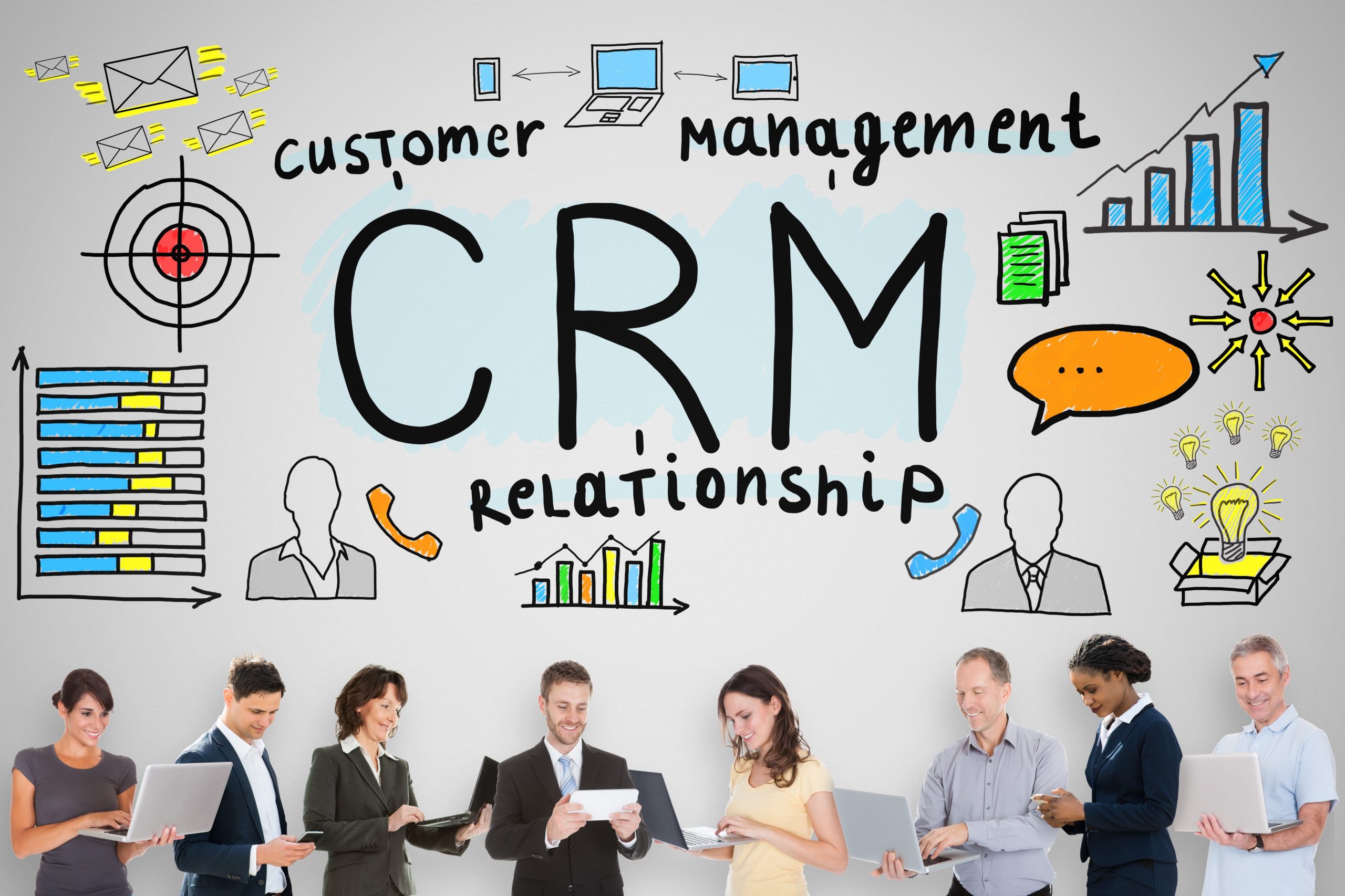E-Commerce – Electronic Commerce As The Basis Of A Modern Economy

Many wonder what e-commerce is and why this slogan has been used so often on the Internet and in various media lately. Even the popular E-commerce Trade Fairs have started to be organized twice a year in recent years, not just once.
In this article, I will present what e-commerce is, what is the idea and history of its creation, what types of e-commerce are and what e-commerce gives to a normal mortal like you or me. Visit this site Broker.cex to get more knowledge.
What is e-commerce
The term e-commerce can be most simply described as online commerce. In other words, every transaction that takes place using the Internet can be said to be an e-commerce transaction. As part of e-commerce, we can talk about the purchase of goods and services, and the parties to the transaction can be both companies and private individuals.
How the idea of e-commerce arose
It is impossible to explain the genesis of e-commerce in isolation from the history of the Internet. The first news about the Internet appeared in 1969. At that time, the first Arpanet nodes were installed in Los Angeles, which were the beginning of the current Internet.
Over several dozen years, it developed widely and spread practically all over the world. In the first phase of its creation, the Internet played a communication role, but the 1980s saw attempts to apply its possibilities in trade. Thanks to the existence of electronic data interchange (EDI) systems, companies were able to exchange commercial information.
This improved communication, but did not fully solve all problems – EDI only worked in the company network. B2B e-commerce came to the rescue of many issues . It used network-based IT applications. Although the Internet was still used mainly as EDI systems, it was characterized by greater flexibility. Relatively quickly, the Internet has become a method of making purchases or sales. Commercial transactions carried out electronically were significantly improved, and as early as 1979 it was possible to make purchases online.
However, a significant popularization of Internet commerce took place in 1992 – then it was the lifting of the US ban on the commercial use of the Internet.
Since around 2000, the boom in e-commerce has reached such a degree that most enterprises offer or communicate their services via the Internet. Both sellers and buyers derive a lot of benefits from this and it is impossible to go back to the times when shopping and transactions could only be carried out in the stationary form. So if you are interested in an e-commerce platform that offers innovative product matching solutions to retailers, marketplaces, logistics companies, and other e-commerce enterprises, you may visit the Price homepage to find out more.
What is worth knowing about the history of e-commerce in Poland
Of course, the popularization of e-shops also reached Poland – here the first e-shop was established in 1994. Poles could use the Internet earlier, from 1991. In 1999, Merlin, Empik and today’s giant Allegro were established.
Since then, e-commerce has been dynamically developing in the country and reaching a wider and wider audience. No wonder that Poland is a country where online sales and shopping quickly gained supporters, and now they often replace traditional shopping.
Many goods can be purchased quickly, conveniently and without problems online. Everything indicates that the market of online stores in Poland will be constantly and systematically developing, gaining new followers every year.
It is worth adding that civil law contracts concluded on-line in Poland are regulated by the provisions of the Civil Code and the Act on the Protection of Certain Consumer Rights.
What are the types of e-commerce
- Trade between companies ( B2B : Business to Business).
● Electronic commerce between the company and the consumer ( B2C : Business to Customer).
● Electronic commerce between consumers (C2C: Customer to Customer).
● Electronic commerce between consumer and business (C2B: Customer to Business).
We can also make a typology distinguishing direct, indirect and hybrid electronic commerce:
● direct electronic commerce – the entire transaction takes place in this case only on the web
● indirect electronic commerce – placing an order and making a payment takes place via the network, but the delivery of a specific item or service takes place using the traditional method
● hybrid electronic commerce – where various types of transitional forms are used.
What concepts related to e-commerce are worth knowing
There are many terms related to the subject of e-commerce. It would be difficult to fully discuss all the issues related to it, but it is possible to try to list and explain at least those concepts that seem particularly important and related to the subject of electronic commerce.
Augmented reality (AR: Augmented Reality) – this is the kind of system that provides communication between the real world and computer-generated. Often the camera view is applied here, on which 3D graphics generated in real time are superimposed. Augmented reality is used in many branches of business and science – in medicine, aviation, marketing, or various types of training.
Faceted search – this is a scheme for creating a web portal directory. The hierarchical structure of the data is replaced by a metadata classification to describe objects that share the same or similar sets of characteristics.
Behavioral Targeting – This refers to the division of the audience of an advertisement about their behavior.
B2B – (Business to Business) – concerns trade between enterprises. Electronic B2B services concern processes related to the company and its partners. B2B activities are more and more popularized and more and more often used in practice. They are also increasingly supported by e-services that allow for the direct transmission of information. If you have questions about how b2b works and how to automate your accounts receivable, then you might want to check out sites like https://www.paystand.com/blog/how-to-automate-your-ar-process to learn more.
Specialized electronic services that require access to specific software from the user, may be provided as:
- digital services
● applications made available by renting specific services (enabling their use in ASP mode)
● applications operating in the company’s IT environment (here the application is installed thanks to the purchased license).
B2C – (Business to Customer) – electronic services in this area concern the use of modern communication and information technologies in the provision of services between the enterprise and consumers. Covers electronic transactions between a business and a customer. Online stores refer to this type of service .
C2C – (Customer to Customer) – this term refers to various types of e-commerce between specific consumers. as an example, an individual online auction or a sale announcement can be mentioned.
C2B – (Customer to Business) – This is the rarest type of e-commerce. Refers to the posting of purchase offers by consumers to certain websites that businesses then reply to. An individual consumer proposes a specific product, and the company interested in buying it pays for it.
Precision marketing – its sources are such branches of marketing as: micromarketing, database marketing and direct marketing. This direction of marketing allows you to identify the most beneficial recipients of marketing activities from business. It uses the ability to combine messages obtained from various types of sources. The purpose of precision marketing is to mark consumers due to the analysis of cumulative information obtained through specialized IT tools. Precision marketing enables individual targeting of marketing offers.
Personalized recommendations – this is a group of items in the catalog of products modified by the needs of consumers, based on the observation of previous activity, methods of comparisons with other customers of the online store.
Run on site – the name that most often denotes the ad emission within the site.
Online Seminar – A webinar that is held in the Internet, live.
What e-commerce gives us
There are many advantages of using e-commerce. Certainly, the most important of them are financial savings (reduction of expenses related to the operation of offices, employment of employees or simplification of contacts with customers, reduction of the need to use warehouses).
In addition to the issue related to the reduction of expenses related to the functioning of enterprises, the benefits of using e-commerce also include the possibility of individualizing contact with the customer and increasing the flexibility of the company. Time can be saved significantly thanks to easier acquisition of information and quick comparisons of goods or services.
When discussing the advantages of e-commerce, it is also worth mentioning its possible limitations. These include, first of all, restrictions on the direct viewing of the ordered goods before making a purchase and the issue of the cost of delivering the goods.
Online stores – the most common form of e-commerce
The online store offers both the seller and the buyer many possibilities. First of all, it helps to save time, which can be significantly optimized by reducing commuting to the store, standing in queues, searching for goods on the spot.
Of course – when making purchases in a different way than the traditional one, it is difficult to see a specific item as accurately as during personal inspection, but you can use photo uploading and detailed descriptions of various things. Visualization is so advanced that even without leaving the house, you can see everything exactly and verify it with the description.
Customers can not only compare products and product prices of different companies, but also decide on the preferred form of payment. Sellers also receive a lot of benefits from running an online store – using the software, the company can analyze the way of shopping, get to know consumers’ preferences and their opinions about the company.
Benefits of Online Trading
The basic advantages of shopping online , consumers include:
- convenience and time saving
● the possibility of comparing offers, reading opinions about the company as well as writing your comments on the transaction
● no rush when making a choice – consumers themselves decide how much time they will spend watching and reading specific offers. Nobody rushes them, nobody is waiting in line behind them. As a result, decisions are made consciously and usually in a deliberate manner
● no geographic restrictions – consumers can purchase both domestic and foreign goods. Without moving, you can reach the store’s assortment from distant corners of the world
● access to a wide range – if something is not in one store, you can look for it in another. The offer of specific Internet companies is usually extensive – to leave the competition as little freedom as possible. The online market is very competitive, so the prices of individual items or services are often low enough to be able to participate in the fight for customers.
Enterprises derive from online trading primarily such benefits as:
- cost reduction
● the ability to quickly update the offer and post an extensive product description
● access to a wide customer base – not only from the country, but also abroad. the Internet offers plenty of opportunities to build solid and loyal customer relationships. Also, it shows various ways of seeking new contractors
● better use of production possibilities and acceleration of business activities
● faster contact with the client, the ability to constantly monitor his activities, preferences, needs
● increase in sales – thanks to lower expenditures and greater opportunities to reach the customer than in the case of a traditional store.
Online Trading Threats
There are some risks associated with online trading or online purchases. Online trading is exposed to such unfavorable factors as, for example:
- the issue of delivery and protection against damage to the ordered goods
● ordering goods that have not been seen directly before may be disappointing
● uncertainty about the integrity of an internet company.
According to Ulrich Beck, in the “society of risk” – risk is present at every step of our lives and taking into account the rapid development of the world, it is difficult to control it. No area of life does not carry any negative aspects that may arise – however, they can be significantly eliminated through the knowledge possessed.
Therefore, nothing prevents you from verifying the seller’s reliability by reading comments about it, and asking for additional photos or a description before ordering the goods. The advantages of online trading outweigh its disadvantages.




















How Your Business Can Benefit From Protective Screens
What Are The Main Advantages Of Using A Marketing Agency?
7 Benefits Of Using Internet Marketing For Your Business
A Guide To Advertising A Brand New Business